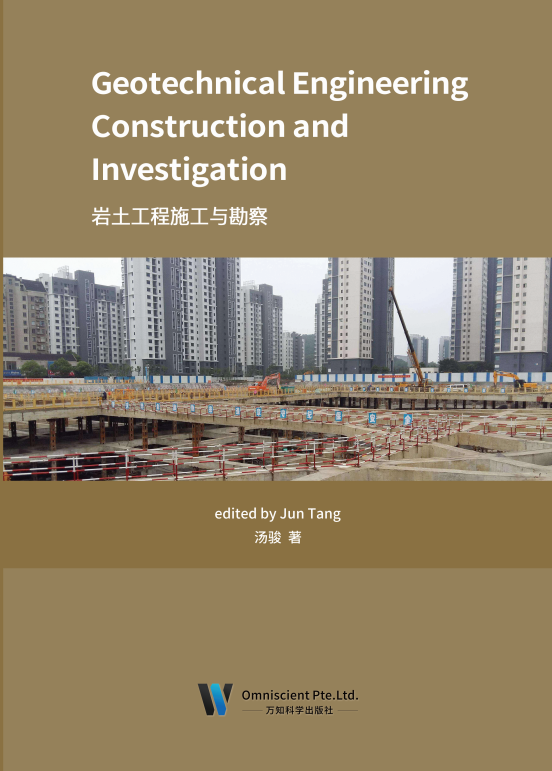
Preface
Geotechnical engineering is an important part of civil engineering, which plays an important role in housing, municipal, energy, water conservancy, road, shipping, mining, national defense and other engineering construction. Because of the close relationship between geotechnical engineering and complex and changeable natural conditions, it often becomes the difficulty of engineering construction. Therefore, geotechnical engineering is the key to ensure the engineering quality, shorten the project cycle, reduce the project cost, and improve the economic and social benefits of the project. With the continuous expansion of China’s infrastructure construction scale, geotechnical engineering has put forward one after another of the new problems to be solved.
With the prosperity of China’s economic construction, there is not much choice space for engineering construction site. In most cases, only through geotechnical engineering investigation can we find out the hydrogeological and engineering geological conditions of the proposed site and its surrounding areas. On the basis of feasibility and stability demonstration of the existing site, the site rock and soil mass can be renovated and reused. This is also the new situation of geotechnical engineering investigation. The blueprint projects of South to North Water Diversion, North to South Coal Diversion and Project of Natural Gas Transmission from West to East China are becoming reality. There are many high-rise buildings and highways extending in all directions. The following geotechnical engineering problems are increasingly prominent, such as foundation settlement, foundation pit deformation, artificial slope collapse and landslide. Therefore, geotechnical engineering survey, the basic link of geotechnical engineering, must provide more detailed, more specific and more reliable geological data related to rock and soil remediation, transformation, engineering design and construction. This paper analyzes and evaluates the possible or hidden geotechnical engineering problems, and puts forward effective prevention and treatment measures, so as to find problems in time, forecast in real time, prevent and treat them as soon as possible, and reduce the economic losses to the minimum.
前 言
岩土工程是土木工程的重要组成部分,在房屋、市政、能源、水利、道路、航运、矿山、国防等各种工程建设中都占有重要地位。由于岩土工程与复杂多变的自然条件密切联系,往往成为工程建设的难点。所以岩土工程是保证工程质量、缩短工程周期、降低工程造价,提高工程经济效益和社会效益的关键。随着我国基础设施建设规模的不断扩大,对岩土工程提出了一个又一个需要解决的新课题,和亟待解决的新问题。
随着我国经济建设的繁荣,工程建设场地并非有较多的选择空间,大多数情况下, 只能通过岩土工程勘察查明拟建场地及其周边地区的水文地质、 工程地质条件,在对现有场地进行可行性和稳定性论证的基础上,对场地岩土体进行整治、改造再利用,这也是当今岩土工程勘察面临的新形势。南水北调、北煤南运、西气东送等蓝图工程正在成为现实,高楼林立、高速公路四通八达,随之而来的地基沉降、基坑变形、人工边坡崩塌和滑坡等各种岩土工程问题也日益突出,由此要求岩土工程的基础环节——岩土工程勘察必须提供更详细、更具体、更可靠的有关岩土体整治、改造和工程设计、施工的地质资料,对可能出现或隐伏的岩土工程问题进行分析评价,提出有效的预防和治理措施,以便于在工程建设中,及时发现问题,实时预报,及早预防和治理,把经济损失降到最低。

Jun Tang, male, the Han nationality, born in Yugan County, Jiangxi Province in 1966. He graduated from China University of Geoscience in 1988. He has been engaged in geotechnical engineering professional technical work, presided over geotechnical engineering survey, design projects of hundreds. Among them, a number of survey and design projects have won the second and third prizes of provincial and ministerial level.
汤骏,男,汉族, 1966 年生,江西余干人, 1988 年毕业于中国地质大学。一直从事岩土工程专业技术工作,主持完岩土工程勘察,设计项目数百项。其中有多项勘察,设计项目获得省部级二、三等奖。